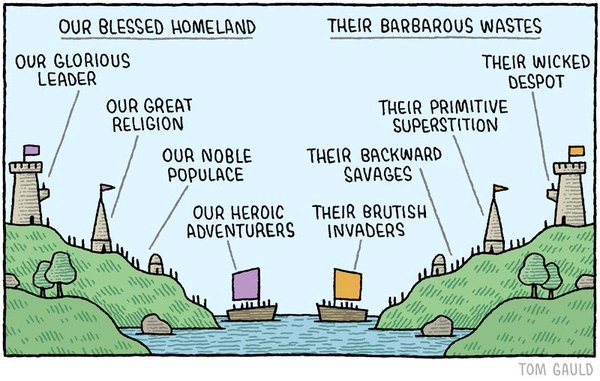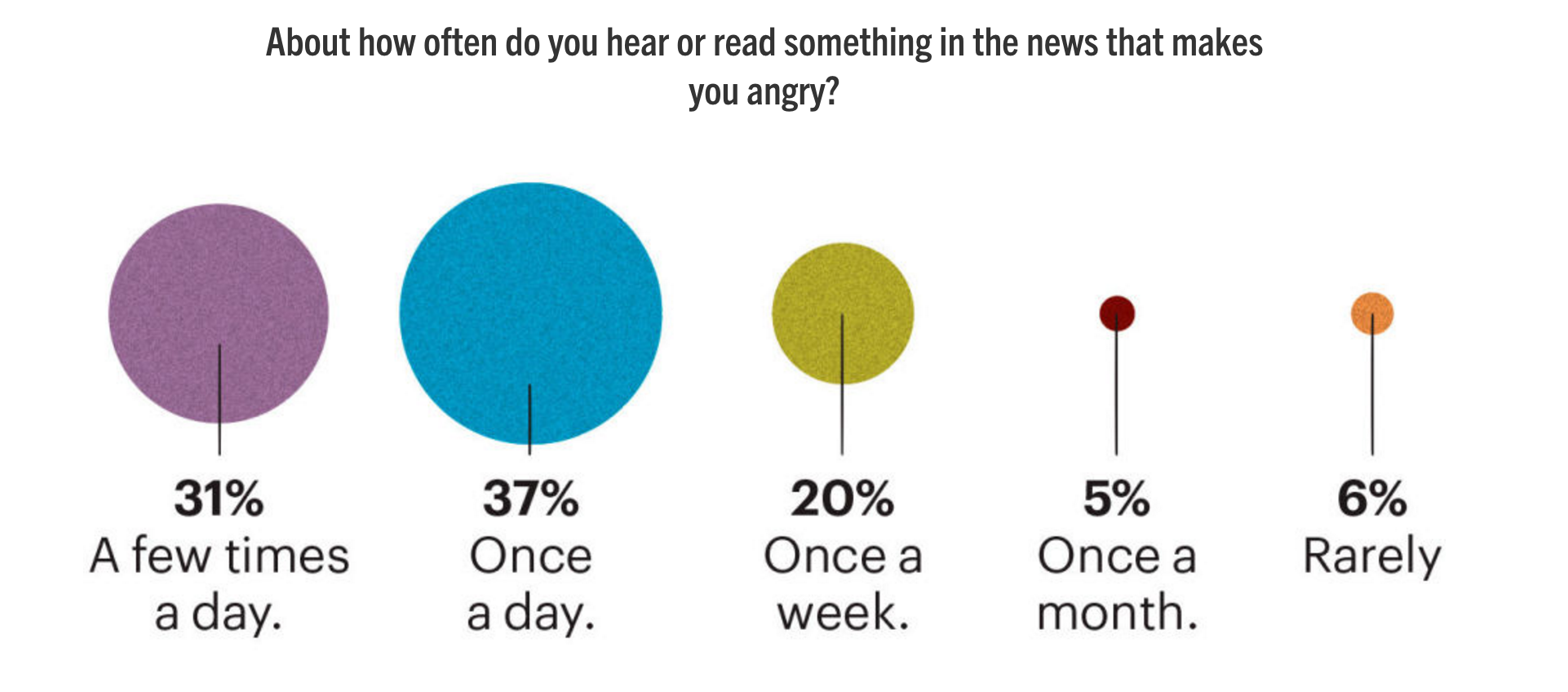Humans 101
Is it possible we?re not right about everything?
 Photo: beastfromeast/Getty Images
Photo: beastfromeast/Getty Images
This story is part of the Internet Time Machine, a collection about life online in the 2010s.
 Illustration: Tom Gauld/TwitterSource
Illustration: Tom Gauld/TwitterSource
What is emerging is the worst kind of echo chamber, one where those inside are increasingly convinced that everyone shares their worldview, that their ranks are growing when they aren?t. It?s like clockwork: An event happens and then your social media circle is shocked when a non-social media peer group public reacts to news in an unexpected way. They then mock the Other Side for being ?out of touch? or ?dumb.?
Fredrik deBoer, one of my favorite writers around, touched on this in his Essay ?Getting Past the Coalition of the Cool.? He writes:
[The Internet] encourages people to collapse any distinction between their work life, their social life, and their political life. ?Hey, that person who tweets about the TV shows I like also dislikes injustice,? which over time becomes ?I can identify an ally by the TV shows they like.? The fact that you can mine a Rihanna video for political content becomes, in that vague internety way, the sense that people who don?t see political content in Rihanna?s music aren?t on your side.
When someone communicates that they are not ?on our side? our first reaction is to run away or dismiss them as stupid. To be sure, there are hateful, racist, people not worthy of the small amount of electricity it takes just one of your synapses to fire. I?m instead referencing those who actually believe in an opposing viewpoint of a complicated issue, and do so for genuine, considered reasons. Or at least, for reasons just as good as yours.
 Illustration: Esquire/NBC News poll
Illustration: Esquire/NBC News poll
This is not a ?political correctness? issue. It?s a fundamental rejection of the possibility to consider that the people who don?t feel the same way you do might be right. It?s a preference to see the Other Side as a cardboard cut out, and not the complicated individual human beings that they actually are.
What happens instead of genuine intellectual curiosity is the sharing of Slate or Daily Kos or Fox News or Red State links. Sites that exist almost solely to produce content to be shared so friends can pat each other on the back and mock the Other Side. Look at the Other Side! So dumb and unable to see this the way I do!
It?s a preference to see the Other Side as a cardboard cut out, and not the complicated individual human beings that they actually are.
Sharing links that mock a caricature of the Other Side isn?t signaling that we?re somehow more informed. It signals that we?d rather be smug assholes than consider alternative views. It signals that we?d much rather show our friends that we?re like them than try to understand those who are not.
It?s impossible to consider yourself a curious person and participate in social media in this way. We cannot consider ourselves ?empathetic? only to turn around and belittle those who don?t agree with us.
On Twitter and Facebook, this means we prioritize by sharing stuff that will garner the approval of our peers over stuff that?s actually, you know, true. We share stuff that ignores wider realities, selectively shares information, or is just an outright falsehood. The misinformation is so rampant that the Washington Post stopped publishing its internet fact-checking column because people didn?t seem to care if stuff was true.
Where debunking an Internet fake once involved some research, it?s now often as simple as clicking around for an ?about? or ?disclaimer? page. And where a willingness to believe hoaxes once seemed to come from a place of honest ignorance or misunderstanding, that?s frequently no longer the case. Headlines like ?Casey Anthony found dismembered in truck? go viral via old-fashioned schadenfreude ? even hate.
?
Institutional distrust is so high right now, and cognitive bias so strong always, that the people who fall for hoax news stories are frequently only interested in consuming information that conforms with their views ? even when it?s demonstrably fake.
The solution is, as deBoer says, ?You have to be willing to sacrifice your carefully curated social performance and be willing to work with people who are not like you.? In other words, you have to recognize that the Other Side is made of actual people.
But I?d like to go a step further. We should all enter every issue with the very real possibility that we might be wrong this time.
Isn?t it possible that you, reader of Medium and Twitter power user, like me, suffer from this from time to time? Isn?t it possible that we?re not right about everything? That those who live in places not where you live, watch shows that you don?t watch and read books that you don?t read, have opinions and belief systems just as valid as yours? That maybe you don?t see the entire picture?
Think political correctness has gotten out of control? Follow the many great social activists on Twitter. Think America?s stance on guns is puzzling? Read the stories of the 31% of Americans that own a firearm. This is not to say the Other Side is ?right? but that they likely have real reasons to feel that way. And only after understanding those reasons can a real discussion take place.
Isn?t it possible that you, reader of Medium and Twitter power user, like me, suffer from this from time to time? Isn?t it possible that we?re not right about everything?
As any debate club veteran knows, if you can?t make your opponent?s point for them, you don?t truly grasp the issue. We can bemoan political gridlock and a divisive media all we want. But we won?t truly progress as individuals until we make an honest effort to understand those that are not like us. And you won?t convince anyone to feel the way you do if you don?t respect their position and opinions.
A dare for the next time you?re in discussion with someone you disagree with: Don?t try to ?win.? Don?t try to ?convince? anyone of your viewpoint. Don?t score points by mocking them to your peers. Instead, try to ?lose.? Hear them out. Ask them to convince you and mean it. No one is going to tell your environmentalist friends that you merely asked follow-up questions after your brother made his pro-fracking case.
Or, the next time you feel compelled to share a link on social media about current events, ask yourself why you are doing it. Is it because that link brings to light information you hadn?t considered? Or does it confirm your world view, reminding your circle of intellectual teammates that you?re not on the Other Side?
I implore you to seek out your opposite. When you hear someone cite ?facts? that don?t support your viewpoint don?t think ?that can?t be true!? Instead consider, ?Hm, maybe that person is right? I should look into this.?
Because refusing to truly understand those who disagree with you is intellectual laziness and worse, is usually worse than what you?re accusing the Other Side of doing.
Keep exploring the Internet Time Machine.


